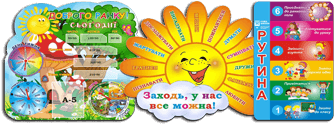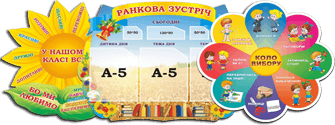Конспекту уроку з англійської мови
Is it easy to be young?
Автор: вчитель англійської мови Бойчук Олена Петрівна
Тема: Is it easy to be young?
Мета:
- практична. Ознайомити учнів з новими лексичними одиницями; вчити учнів розуміти нові слова у контексті; розвивати вміння вести діалог за зразком; удосконалити навички вживання модальних дієслів.
- розвиваюча. Розвивати мовну здогадку на мовленнєву реакцію,
розвивати уяву учнів в умовах роботи у парах; - освітня. Поглибити лексичний запас учнів та розвивати знання
учнів про граматичне явище ,,Модальні дієслова”; - виховна. Виховання розуміння свого права на власну позицію і тактовне ставлення до думки інших людей.
Тип уроку: комбінований.
Обладнання уроку: комп’ютер з мультимедійною презентацією по темі уроку, роздавальний матеріал зі структурами.
Хід уроку
I. Організація класу
Мета: організувати клас, налаштувати його на продуктивну працю.
Прийом: привітання та пояснення цілей і завдань уроку.
Teacher: Good morning, pupils! Today we will continue to speak about the problems of the youth. And the topic of our lesson is “Is it easy to be young?”. As far as you know that teenagers always have serious problems and sometimes they don’t know how to cope with them. I can say that you know from your own experience that it is true. I think you’ll share the difficult situations from your life today and we will find the answer to the main question of our lesson “Is it easy to be young?”.
Teacher: Let’s revise the expressions about this theme:
to complain of
to depend on
to be free
to express views
to meet people
to have rights
to take part
to get information
to continue education
to find a job
to live alone
to be homeless
young pregnancy
Teacher: Now let’s read them one by one. …. , will you start, please? (Учні читають слова один за одним).
Мовленнєва зарядка
Мета: активізація поданого тематичного вокабуляру в усному мовленні.
Прийом: усне опитування учнів.
Teacher: Look at the laptop. You see the questions concerning our topic. Let’s read and then discuss them.
1) Учні читають запитання один за одним.
- What are the most important problems of teens nowadays?
- Who can help the young people in difficult situations?
- Is it hard to live in our society?
- Our government cares about the future generation, doesn’t it?
- Do you prefer to cope with your problems yourself or to complain to somebody?
- Do agree that adults have the same problems as children?
- Is it easy to be young?
(Учні висловлюють свою думку з приводу кожного питання).
ІІІ. Основна частина уроку
Етап І. Введення нових лексичних одиниць та активізація вже засвоєних у структурах
Мета: розкрити значення нових лексичних одиниць, навчити дітей вживати їх в усних висловлюваннях (на основі презентації).
Прийом: розпізнавання та розуміння нових лексичних одиниць в усному мовленні.
Teacher: So let’s discuss (перегляд презентацій):
1) Teenagers’ rights:
- For non-discrimination
- To live
- To express their views
- To meet other people
- For protection
- For name
- For nationality
2) What kind of problems have teens?
- Drug addiction
- Drinking problems
- Violence
- Poverty
- Discrimination
- Cruelty
- Aggressiveness
- Family, school and personal problems
- Pregnancy
3) Adults’ problems:
- To get money;
- To express individuality;
- To bring up children;
- To find interesting job.
4) What parents allow their children:
- To have a lot of friends;
- To work and get money;
- To travel;
- To take any information;
- To wear everything they want;
- To help about the house;
- To have their own view of life.
5) What parents forbid:
- To drink alcohol;
- To smoke;
- To take drugs;
- To watch TV a lot;
- To travel over the country alone;
- To be with friends at night time.
6) The complaints of teenagers:
- Teens leave homes;
- Adults don’t understand them;
- The government doesn’t care about teens;
- The world is very cruel.
Прийом: групова робота.
Teacher: All the words are familiar to you. And also you know all problems from teenagers’ life. So now I suggest you to divide into 3 groups and each group should choose its capitan.
Now please, capitans, come to me and choose one on the envepoles with the task for your group:
1ST GROUP – PROBLEMS OF TEENAGERS
2ND GROUP – COMPLAINTS OF TEENAGERS
3RD GROUP – BENEFITS TO BE YOUNG
Teacher: As all the group have successfully finished their task, I ask the capitans come to the blackboard and read what their have writen.
Етап ІІ. Повторення граматичного явища ,,Модальні дієслова”
Мета: удосконалити навички вживання модальних дієслів
Прийом: розпізнавання модальних дієслів та вміння правильно їх вживати у мовленнєвій ситуації.
Teacher: Last time we had studied such grammatical phenomenon as modal verbs. So let’s revise it and their usage in the English language:
MODAL VERBS
| Can (will be able – future; could – past) Can’t | 1.Ability2. Possibility 3. Permission 4. Uncertainty, doubt
5. Improbability | I can swim.It can happen now. Can I take your pen? Can it be true?
It can’t be true. |
| MayMight |
| He may be at home now.You might carrying my bag. |
| Must (had to – past) | 1. Oblidation2. Emphatic advice 3. Supposition (strong probability) | I must help my sister.You mustn’t cry. He looks pale. He must be ill. |
| Have to | 1. Obligation (imposed by circumstances) | It’s late. I have to go. |
| To be to |
| We are to meet at 5 o’clock.All pupils are to do their homework. |
| Ought to |
2. Supposition (strong probability) | You ought to help old people.It’s 9 o’clock. He ought to be at school. |
| Should Shouldn’t |
1. Obligation (warning) | You looks ill. You should stay at home.You looks ill. You shouldn’t go to school. |
| Shall |
| He’ll do as I say.Shall I bring some coffee? |
| Will |
2. Refusal to perform an action | She will sit at TV for the whole evening.The door won’t open. |
| Would | 1. Expected result | He wouldn’t go to school. |
| Need Needn’t |
1. Absence of necessity | Need I go there?You needn’t learn this poem by heart. |
| Dare | 1. To have courage to smth. | How dare you say this! |
Can’t help doing smth. – не можу не …
Can’t but do smth. – не залишається нічого іншого, як …
May as well – було б краще …
Must need – обов’язково мусить
I must tell you – слід сказати, що …
Had better do smth. – краще б
You ought to know it – Ви маєте про це знати
I dare say – Я насмілюсь сказати, що …
Teacher: As we revise the main grammatical rules concerning modal verbs, so let’s put them into practice. For this purpose I suggest you the text. Your task is the following: read it and fill in the gaps with appropriate modal verb.
Quarrel with parents
– What’s the matter with you? Why are you so angry? _________ you tell me?
– I _______ tell you, because of my parents. I quarreled with them yesterday.
– You as usually didn’t do your homework, did you?
– Oh, no, the problem is bigger. As far as you know my best friend had a party two days ago, that’s why we drank and smoked a lot, and in addition I came back home later then usually.
– I think, that you imagined yourselves adults, didn’t you?
– May be, but at that moment we didn’t think about it.
– Have you smoked, drunk and come back home late early?
– No, my parents always forbid me to do it.
– ________ your parents punish you?
– Yes. They ________ do this. They made me read books twice a day.
– It _________ be true, you hate reading.
– What are you going to do?
– It’s a good question. Of course, I’ll try to make up with them, because I love my mum and dad.
– I agree with you, because all parents ___________ want to honour their children and give always good advice.
– Don’t forget, that children _______ have own views, ________ express their individuality.
– To my mind, teens _______ do it only in a frame of law and our parents try to follow these rules.
– Yes. And everybody _________ to know it.
Teacher: So let’s check you answers. Please, read the sentences one by one.
Етап ІІІ. Підведення підсумків теми.
Мета: закріплення навичок і вмінь вживання нових лексичних одиниць і граматичних структур в пемному мовленні.
Прийом: усне пояснення.
Teacher: So today we studied the topic connected with the problems of the youth. And for the conclusion I suggest you the following suggestion for discussion:
- We think that all children were born for happiness.
- Do you agree with it?
IV. Заключна частина уроку
Eman І. Домашнє завдання
Мета: закрілення навичок i вмінь вживання нових лексичних одиниць та граматичних структур в писемному мовленні.
Прийом: усне пояснения.
Тeacher: For the next time you are to write a composition on the topic “Generations’ gap: your attitude to it”, using all the words we’ve just learned.
Eman ІІ. Підсумки уроку
Мета: оцінити роботу учнів на ypoцi, виставити оцінки. Стимулювати до самостійної npaцi.
Прийом: усне заохочування. Оцінювання.
Тeacher: So, the lesson is over. You worked very hard today and we fulfilled our aims. I’m very glad you were so active and I’m sure you’ll remain so during next lessons too. The marks for today are …
I wish you all the best. See you tomorrow.









Здравствуйте, остаётся маленький вопрос. Есть ли ответы есть на все эти задания? Чтобы проверить правильность исполнения задания!?